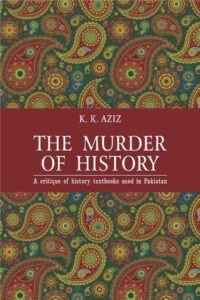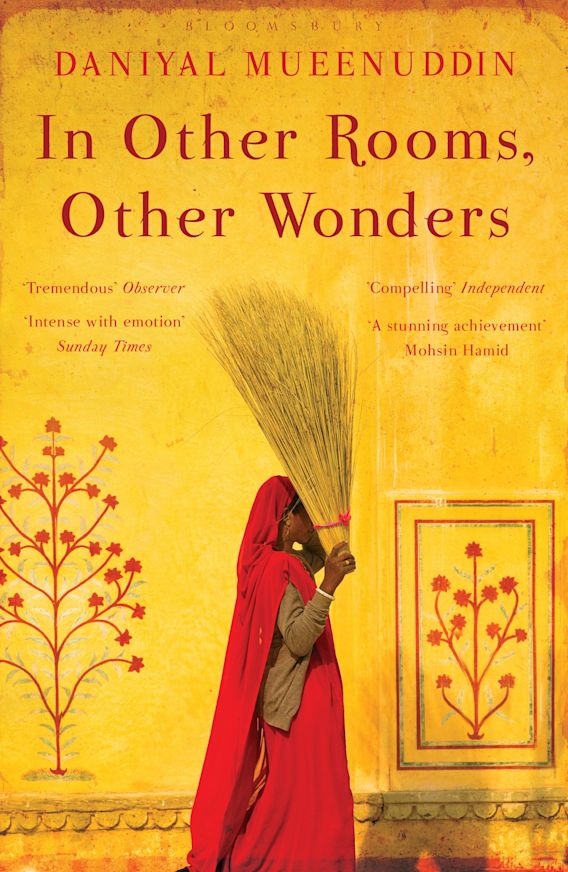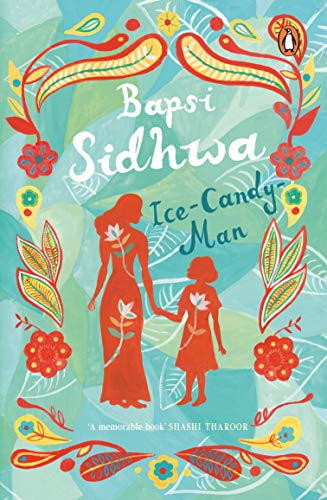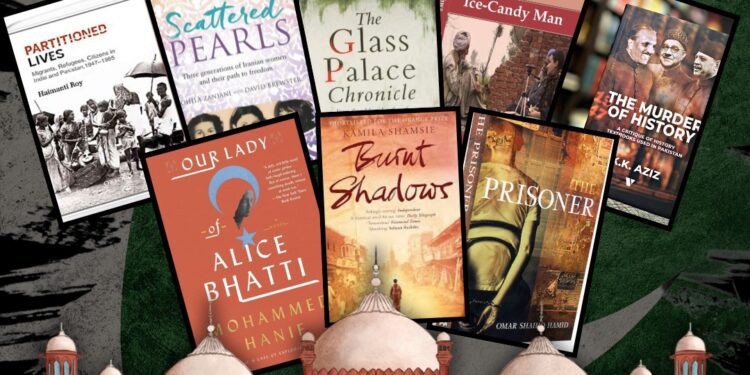Pakistan’s rich tapestry of literary arts extends beyond the mostly heard and recorded achievements prominent throughout history. Due to its multi-cultured approach, the country has seen works from not just one ethnicity, but where the contributions of minority communities have been integral to its development and identity. From literature to science, social activism to sports, these communities have played pivotal roles in shaping the nation’s history and future. Yet, their stories and achievements frequently remain in the shadows, overshadowed by the dominant narratives. This article aims to bring to light the remarkable achievements of Pakistan’s minority communities, recognizing their invaluable contributions to the nation and celebrating the rich diversity that defines the country. From history narratives, to critiques,
1. The Murder of History: A Critique of History Textbooks Used in Pakistan” by K.K. Aziz
K.K. Aziz, a distinguished historian from Pakistan’s Punjabi Christian minority, critically analyzes

the way history is taught in Pakistani schools. The book exposes how textbooks have been manipulated to serve political agendas, leading to a distorted understanding of historical events among students. Aziz meticulously reviews various textbooks, pointing out inaccuracies, biases, and deliberate omissions, particularly those related to the history of minority communities.
His work is a courageous and eye-opening account of how historical narratives are shaped and the implications this has on national identity and inter-community relations in Pakistan. This book is essential reading for anyone interested in understanding the roots of historical misrepresentation in Pakistani education.
2. “My Feudal Lord” by Tehmina Durrani

Tehmina Durrani’s memoir, “My Feudal Lord,” is a gripping and harrowing account of her marriage to Ghulam Mustafa Khar, a powerful feudal lord and politician in Pakistan. Although Durrani is not from a minority community, her book sheds light on the oppressive feudal system in Pakistan, which affects many marginalized groups, including women and religious minorities.
Durrani’s personal experiences of abuse, manipulation, and survival within this system reveal the deep-seated patriarchal and authoritarian structures that govern rural Pakistan. The book became a bestseller and sparked widespread debate about women’s rights and social justice in Pakistan. It is a powerful testament to the courage of a woman who dared to speak out against a system that continues to subjugate millions.
3. “Partitioned Lives: Narratives of Home, Displacement, and Resettlement” edited by Haimanti Roy
This anthology brings together personal narratives, essays, and academic reflections on the Partition of India and Pakistan in 1947, one of the most traumatic events in South Asian history. Edited by Haimanti Roy, the collection includes contributions from individuals belonging to various religious and ethnic minority communities who experienced the horrors of displacement and violence during Partition.

The book provides a platform for voices that are often silenced or marginalized in mainstream historical accounts, offering a more inclusive understanding of the Partition’s impact. Through these narratives, the book sheds light on the long-term psychological and social consequences of Partition for minority communities in both India and Pakistan. It is an essential read for those interested in the human dimensions of this historical event.
4. “The Glass Palace Chronicle: The Search for a Baloch Identity” by Habib Jalib Baloch
Habib Jalib Baloch, a prominent Baloch poet, politician, and activist, explores the history and identity of the Baloch people in this collection of writings. The book delves into the rich cultural traditions, language, and struggles of the Baloch community, offering a rare glimpse into the life and aspirations of a people often marginalized in the broader Pakistani narrative. Jalib’s work is both a celebration of Baloch heritage and a critique of the political and social challenges faced by the community, including issues of autonomy, representation, and human rights. His poignant and powerful prose captures the spirit of resistance and the quest for dignity that defines the Baloch identity. This book is an important contribution to the literature on ethnic identity and minority rights in Pakistan.
5. “Our Lady of Alice Bhatti” by Mohammed Hanif
In this satirical novel, Mohammed Hanif, a celebrated Pakistani writer from a minority background, tells the story of Alice Bhatti, a Christian nurse working in a chaotic Karachi hospital. Through Alice’s eyes, the novel explores themes of religious discrimination, gender inequality, and the harsh realities of life for marginalized communities in Pakistan. Hanif’s dark humor and sharp wit expose the absurdities and injustices of Pakistani society, particularly the challenges faced by religious minorities like the Christian community. The novel is a critique of the socio-political structures that perpetuate inequality, but it is also a deeply human story of resilience, love, and survival. Hanif’s portrayal of Alice Bhatti is both empathetic and incisive, making this book a must-read for those interested in the intersection of religion, gender, and class in Pakistan.

6. “In Other Rooms, Other Wonders” by Daniyal Mueenuddin

Daniyal Mueenuddin, a Pakistani author with a mixed ethnic background, presents a collection of interconnected short stories that paint a vivid picture of life in rural and urban Pakistan. The stories explore the lives of various characters, from wealthy landowners to their servants, offering insights into the class divisions, power dynamics, and moral complexities of Pakistani society. While not exclusively focused on minority issues, Mueenuddin’s work touches on the experiences of marginalized individuals, including women and those from lower socioeconomic backgrounds. His nuanced storytelling captures the contradictions and challenges of a rapidly changing society, making “In Other Rooms, Other Wonders” a compelling read for anyone interested in the social fabric of Pakistan.
7. “The Prisoner” by Omar Shahid Hamid
Written by Omar Shahid Hamid, a police officer turned novelist, “The Prisoner” is a gripping crime thriller set in the chaotic and often dangerous city of Karachi. The novel follows the story of a police officer navigating the treacherous world of crime, corruption, and political intrigue in Pakistan’s largest city.

While the book is primarily a work of fiction, it offers a stark and realistic portrayal of the challenges faced by law enforcement and the impact of these challenges on the city’s diverse communities, including religious and ethnic minorities. Hamid’s firsthand experience as a police officer lends authenticity to the narrative, making it a powerful commentary on the complexities of justice, power, and survival in Pakistan. This book is an engaging read for those interested in crime fiction with a strong social and political undertone.
8. “The Scattered Pearls: A Collection of Short Stories” by Kishwar Naheed
Kishwar Naheed, one of Pakistan’s most prominent feminist poets and writers, offers a collection of short stories that explore the lives and struggles of women and marginalized communities in Pakistan. Naheed, who has long been an advocate for women’s rights and social justice, uses her stories to highlight the challenges faced by those who are often voiceless in society, including religious minorities and the poor. Her writing is both poetic and powerful, capturing the emotions, aspirations, and resilience of her characters. “The Scattered Pearls” is a testament to Naheed’s commitment to social justice and her ability to give voice to the silenced. This collection is essential for readers interested in feminist literature and the exploration of social issues in Pakistan.
9. “Burnt Shadows” by Kamila Shamsie
“Burnt Shadows” by Kamila Shamsie is a sweeping historical

novel that spans several decades and continents, including significant moments in Pakistan’s history. The novel follows the life of Hiroko Tanaka, a Japanese woman who survives the bombing of Nagasaki and later moves to India,
Pakistan, and the United States. Through Hiroko’s journey, Shamsie explores the impact of global events on individual lives, including the Partition of India and Pakistan, the rise of Islamic fundamentalism, and the post-9/11 world.
While Shamsie does not exclusively focus on minority issues, her work often addresses the complexities of identity, belonging, and displacement in a multicultural society. “Burnt Shadows” is a poignant and thought-provoking novel that challenges readers to consider the interconnectedness of history, politics, and personal narratives. It is a must-read for those interested in the global dimensions of Pakistani history and identity.
10. Ice-Candy Man” by Bapsi Sidhwa
“Ice-Candy Man,” also published as “Cracking India,” is a seminal work by Bapsi Sidhwa, one of Pakistan’s most celebrated minority authors. A member of the Parsi (Zoroastrian) community, Sidhwa offers a unique perspective on the Partition of India in 1947 through the eyes of Lenny, an eight-year-old Parsi girl living in Lahore. The novel vividly depicts the horrors and communal violence that erupted during Partition, and how these events shattered lives and communities. Lenny, who suffers from polio, narrates the story with an innocent yet perceptive voice, allowing readers to experience the escalating tensions and eventual tragedy of Partition in an intimate, personal way.

Pakistan: A Place for All
As Pakistan moves forward, the need to recognize and celebrate the contributions of its minority communities becomes ever more critical. These communities have not only played a crucial role in the nation’s progress but have also enriched its cultural, scientific, and social landscapes. By acknowledging their achievements and addressing the challenges they face, Pakistan can foster a more inclusive and united society. The strength of the nation lies in its diversity, and honoring the stories of its minority communities is essential for building a future where every citizen, regardless of background, is valued and celebrated. As we reflect on the past, let us commit to ensuring that these voices are heard, respected, and remembered for generations to come.
Read More:
Book Review: The longest August by Dilip Hiro
















